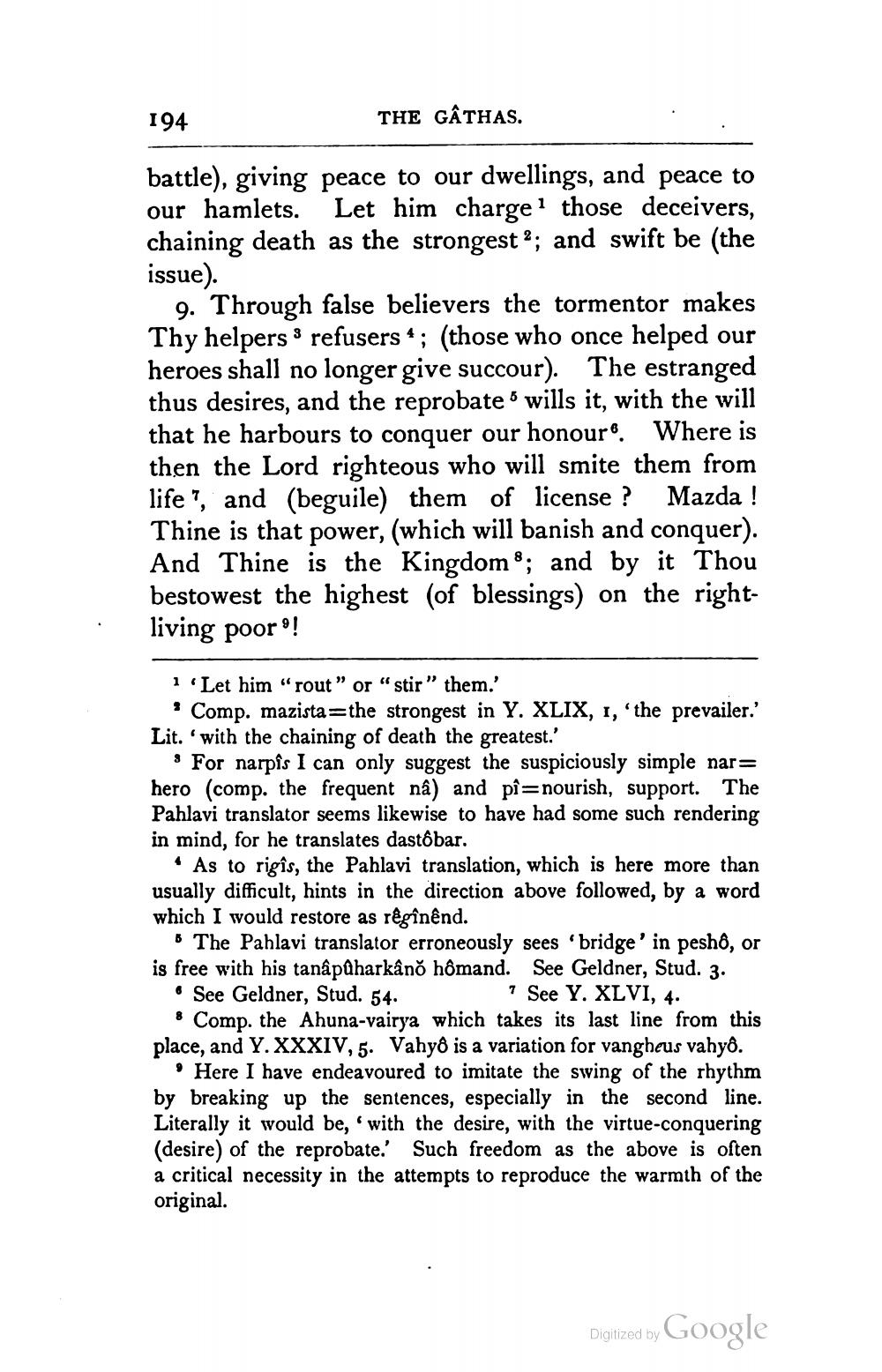________________
194
THE GÂTHAS.
battle), giving peace to our dwellings, and peace to our hamlets. Let him charge 1 those deceivers, chaining death as the strongest ?; and swift be (the issue).
9. Through false believers the tormentor makes Thy helpers : refusers 4 ; (those who once helped our heroes shall no longer give succour). The estranged thus desires, and the reprobate 5 wills it, with the will that he harbours to conquer our honour. Where is then the Lord righteous who will smite them from life", and (beguile) them of license ? Mazda ! Thine is that power, (which will banish and conquer). And Thine is the Kingdom ®; and by it Thou bestowest the highest (of blessings) on the rightliving poor !!
1 Let him "rout” or “stir" them.'
• Comp. mazista=the strongest in Y. XLIX, 1, 'the prevailer.' Lit. with the chaining of death the greatest.'
• For narpis I can only suggest the suspiciously simple nar= hero (comp. the frequent nâ) and pî=nourish, support. The Pahlavi translator seems likewise to have had some such rendering in mind, for he translates dastóbar.
• As to rigîs, the Pahlavi translation, which is here more than usually difficult, hints in the direction above followed, by a word which I would restore as règînênd.
The Pahlavi translator erroneously sees 'bridge' in peshô, or is free with his tanâpâharkânð hômand. See Geldner, Stud. 3. See Geldner, Stud. 54.
See Y. XLVI, 4. & Comp. the Ahuna-vairya which takes its last line from this place, and Y. XXXIV, 5. Vahyô is a variation for vangheus vahyô.
Here I have endeavoured to imitate the swing of the rhythm by breaking up the sentences, especially in the second line. Literally it would be, with the desire, with the virtue-conquering (desire) of the reprobate.' Such freedom as the above is often a critical necessity in the attempts to reproduce the warmth of the original.
Digitized by
Digitized by Google




